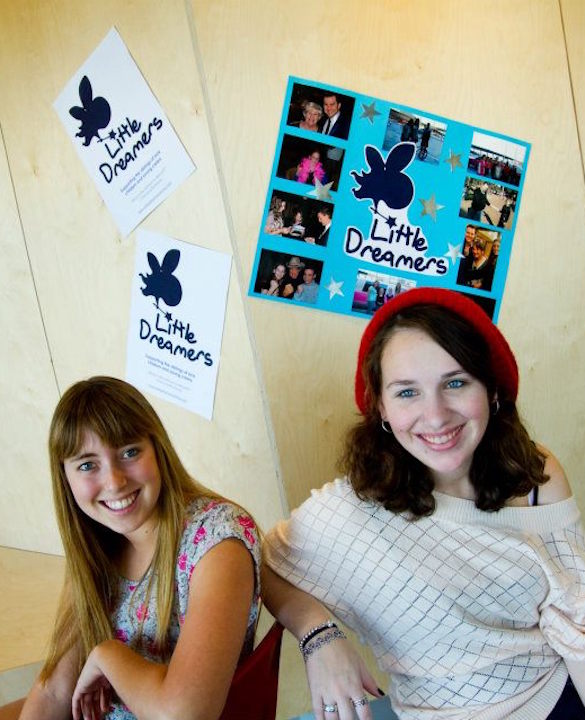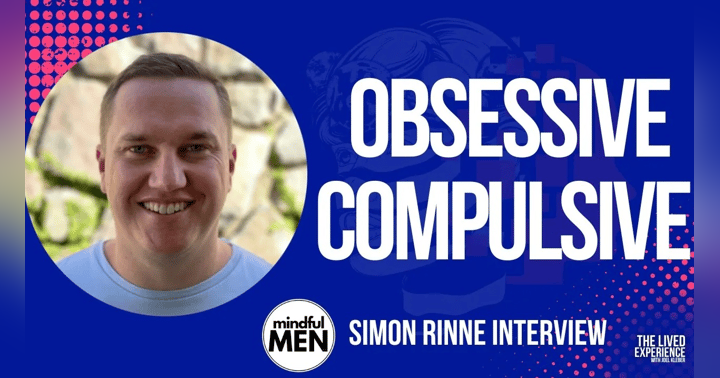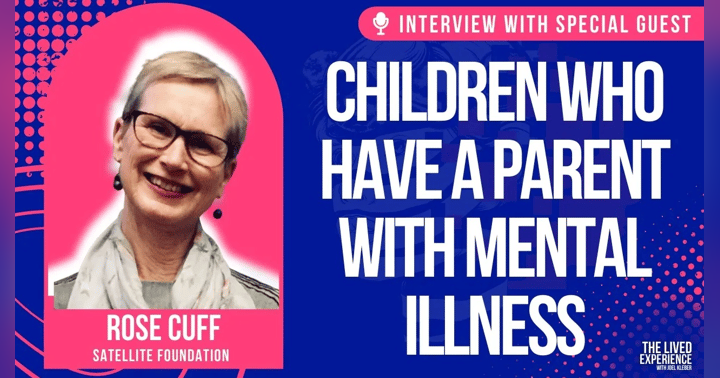Interview with Madeleine Buchner, CEO & Founder of Little Dreamers

Interview with Madeleine Buchner, CEO & Founder of Little Dreamers
Madeleine Buchner is the Founder and CEO of Little Dreamers, Australia’s leading Young Carer Organization—supports young carers who all throughout Australia. Little Dreamers is now an internationally recognized organization that believes in a world where Young Carers have someone to care for them.
Madeleine grew up as a Young Carer for her brother and mother with a myriad of health conditions. Madeleine is an entrepreneur and social innovator with a passion for supporting people often overlooked in the Australian community, Young Carers. Madeleine was named as a 2017 Queen's Young Leader award recipient.
What made you start the Little Dreamers organisation?
I grew up as a young carer for my brother and mom.
My brother has a range of chronic health conditions and learning difficulties and has a range of allergies as well.
He had a very poor immune system and was in and out of the hospital a lot when he was younger, and then when I was 14 years old, started caring for my mum as well.
My Mom was diagnosed with breast cancer—she was very young.
She went through all the treatments that come through that are come with that she lost her hair with chemotherapy and has been left with rheumatoid arthritis in her hands and her feet and osteoporosis as well.
I've done all my caring alongside my dad, but have also supported him, and supported my mom and my brother at different times with their mental health as well.
So as someone who's grown up with anxiety as well, there are lots of different layers.
What support was then offered for you when you're going through this situation?
Growing up there wasn't a huge amount of direct support.
I was supported by an organization called Carenet, but it was kind of like a Big Brother Big Sister program—I called them co-pilots.
So, I had a co-pilot, her name was Angie—she used to come over and hang out with me and help me with my homework.
But other than that, there was no real support for me as a young carer. I didn't even know what the term young carer meant when I was younger.
So, I think that a lot of the time, I felt quite overlooked and isolated, but also felt quite guilty for feeling that way—when I wasn't the sick one in my family.
I felt like, why should I deserve attention? Why should I need extra support?
I'm healthy. And so, I think that was something that I went through a lot when I was a kid as well.
How did you manage to work your way through while growing up and attending school?
I was badly bullied at school. It came from a combination of my brother was different. I was always looking after him—we went to the same school.
I was badly bullied for being different. I think that my values growing up were also different. Instead of wanting to go out and hang out with my friends I often wanted to stay home to make sure I was there to provide the care that needed to be provided to my family.
I'm good with books—I love reading. My marks were always good, except for the fact that I used to lie a lot at school.
And that came from wanting attention. I didn't get a lot of attention at home because of my brother.
And so, I used to make up these extraordinary lies and tell incredibly tall tales at school. I think educationally I was okay. But socially, I really struggled at school.
What did you do to take yourself out of that?
I used to read a lot. I listened to a lot of music. I find that listening to music still today is a big escape for me.
My CD collection was next level when I was younger—same with the books that I used to read. That was kind of what I would do to escape, and I also used to dance.
So, I was a dancer growing up—not a very good one, but I used to go to dance classes as well.
How did you come about founding little dreamers?
It was originally called the Kidz club. There were three of us, me and two of my best friends, who founded the Kidz Club; we wanted to fundraise and run events to raise money to make sure that every child who had a sick sibling was able to access a co-pilot—we ran a couple of events. So, we started fundraising when we were nine years old.
We wanted to then start raising money for other organizations and then just kept it, so then we became the kids club. Three of us joined a competition called Youth inspire. But we pitched this idea for an organization called Little Dreamers that supported the siblings of sick kids. And then it’s kind of just grew from there.
We launched in 2009. And it's 13 years this year since we launched, and we only launched with one program and all volunteers, and in now, we run eight different core support programs and have a team of 50 staff working with about six and a half 1000 kids per year, right around the country.
How do you show the impact of the Little Dreamers programs and everything you do with the people to just to help with the government regarding funding and things like that?
We utilize an impact measurement and evaluation framework called the outcome star framework.
We do a star assessment called my mind star at the beginning when a young kid joins our program. We then set goals with the young carers, so our family support workers will put together a support plan for our young carers.
And then we refer them into either our programs or into programs from other organizations that are best suited for that young person and what areas they want to work in.
So, young carers will do a survey at the end of programs. And then at a six month and 12-month mark, we redo my mind, start the math and the pan off as well, again, to see if anything has changed.
And then, we use individual programs, specific evaluations, and surveys to see which then the program is impacting that young person's quality of life in different ways, and our dream experiences provide great short-term support, acknowledgment, and self-confidence building.
Our big dreamer’s program, which is a six-month personal development program for 14- to 18-year-old young carers, really shifts things in terms of their mental health or their employability, or their resilience or sense of identity.
So, altogether, it's kind of a complicated and complex framework, but it allows us to report to the government to our other donors about some interesting insights as to how young carers are spending their time what their quality of life is like, and how little dreamers are you supporting that.
What are the interesting things that's coming out of it?
The most interesting thing we're seeing is which of our programs are creating that long term sustainable shift in a young person.
We've seen an increase in engagement with education through our tutoring programs, and an increase in self-perceived mental health.
A lot of our kind of young carers who are 14 to 25, we're seeing real significant shifts in their own self-perceived mental health and their resilience and coping mechanisms.
In our younger young carers, we're seeing incredible changes in their social isolation levels.
The fact that they're feeling more comfortable talking about their caring role, but also the fact that they know about more young people who are just like them.
I think that's the kind of change as they grow up. And that matches with our programs get more kind of complex and long as in terms of their engagement with different programs. And we work with kids as young as four years old, right through to 25.
And I have been very privileged over the last 13 years to be able to watch a lot of our young people grow up over that time.
What age did you have the mentor from the other organization?
I reckon I would have been eight until I was about 10 or 11, maybe. And I mean, I'm 29 now, and I still remember that so clearly.
And that's a massive testament to Angie and the impact that she had on my life.
But I hope our programs create the same opportunities for our young people as Angie gave me.
What data or insights can you give around the problems that young carers face?
One in 10 young people grows up as a young carer. These young people are up to 1.5 years behind in their schooling at a UI level through, and that's measured through NAPLAN testing scores.
They're less engaged with their schooling and employment than their peers.
60% of young carers aged 15 to 24 are not engaged in work, compared to 38% of non-young carers.
Two out of three young carers have a mental illness of their own, and 50% of young carers and their families live below the poverty line here in Australia.
So that's a lot of different complex factors that all kind of roll into one very tough package for many young Australians.
About a quarter of the kids that we work with acknowledge that they have a parent with a mental illness.
And that, and I use the word acknowledge carefully because a lot of our families have undiagnosed mental illness in them as well.
They haven't recognized or the parent hasn't recognized that they also have a mental health concern, and that the child is supported as well.
So out of these families, I guess there is still a lot of stigmas, a lot of young people not talking about their caring role, because of fear of repercussions, we have had a lot of young people express to us that they don't talk about it because they are scared—they're going to be taken away from their family, especially if they're in a single parent family.
And they are providing that primary level of care.
I think the main thing we need to do as a community and that we try and do at little dreamers is really breaking down that stigma that is still associated with caring for someone with a mental illness and allow them to allow the carers to get the support that they need and recognize that they need support as much as the person who they are providing care for does.
What sort of advice can you give to people who have had lived experience or young carer?
Talk about your experience all the time, write articles, and link your experience with topical things that are going on in the community.
If it's a new piece of legislation, a new piece of research that's coming out that you've read about in in the paper, a story on the project, or on a current affair that you can relate to, because it's very similar to your experience, write about it.
Literally, send it into online magazines, talk to radio shows, and if we hear about a carer-related story on the radio, we'll pick up the phone and call them, and so I think it's a little thing that adds up to big things along the way.
And the more times you share your story, the more time anyone listening shares their story, the more other people will go, I think it’s like a snowball and ripple effect.
Sharing your story encourages other people to share their stories.
And the more people who talk, the more people will realize how common it is.
To learn more or assist in anyway way, please visit https://www.littledreamers.org.au/











